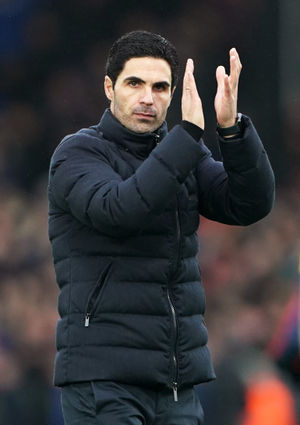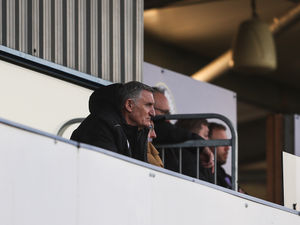Matt Maher: Top of the football pyramid is nothing without a base
By the end of today we might know a bit more detail, albeit likely broad, of the Premier League’s plans for getting their season finished.
Since football in the top flight was suspended last Friday, in the wake of Arsenal manager Mikel Arteta’s positive test for the coronavirus, the subject has understandably dominated the sporting headlines.
It is understandable too. After all, it is the Premier League which garners the most interest and the most money. Of course, people are eager to know whether Liverpool will be able to lift the title, whether Villa will be relegated despite having played a match fewer than their opponents, or if Albion and Leeds will be denied promotion due to forces beyond their or anyone else’s control.
But, the chances are the focus may very soon start to shift further down the football pyramid where the sudden halt to matches threatens to take a considerable toll.
The situation across the country and continent is so fluid that, no matter what might be decided in today’s meeting of the 20 top-flight clubs, we still won’t be able to say for certain when play is likely to resume.
What we do know for certain is the longer the sport remains on hiatus, the greater the potential damage to clubs in Leagues One and Two and lower (and in a few cases possibly higher) due to loss of revenues.
That is not to say there would be no financial impact near the top of the sport were, to give an example, Villa relegated or Albion miss out on promotion. For those people you rarely hear about, the non-playing or non-coaching staff, there would be repercussions.

Yet it would be nothing compared to the scale of what is happening at Barnet, who within 24 hours of the National League suspending fixtures announced they had placed 60 members of staff, including head coach Darren Currie, on notice of redundancy.
In a statement, Barnet admitted they had budgeted for promotion this season. Currently sat 11th in the National League Premier, there are some who might view their plight as just another example of a club gambling more than it could afford on the outcome of football matches.
Yet Barnet are hardly the only club to have taken such an approach, while even those clubs careful to stay within their means devote as much of the budget as possible on the playing squad. It really doesn’t take much for the figures to stop adding up. The loss of gate receipts from just four or five postponed matches can leave a serious hole in the finances, not to mention the cash lost from cancelled stadium functions.
“It doesn’t take long for a business to get into a cash spiral decline. When it does, it is almost impossible to get out of it,” warned Walsall chairman Leigh Pomlett in the Express & Star earlier this week.
Pomlett has called for the EFL to show more urgency in finding means to support clubs who are facing up to a difficult few weeks and most likely months.
Help is, hopefully, on the way, though the discussions FA chief executive Mark Bullingham revealed are ongoing between the Premier League, EFL and the government over how best to assist the clubs in greatest danger will have to translate into firm action sooner than many might think.
Just maybe the help needs to come from other sources too. Colin Gordon, the Midlands-based football agent, is among those who believe the onus for bailing out the less fortunate does not just fall on the wealthiest clubs but also the richest players, along with broadcasters and even betting companies who benefit so much from the sport.
He is calling for the creation of a funding pot, headed by the Premier League and PFA, into which players, managers, executives and even agents can make voluntary contributions to help smaller clubs cope with the burden of contracted staff and players.
As a collective, agents are not usually regarded as a force for good in the sport.
Yet the stereotype can often be unfair. Gordon spent five years as chairman of Kidderminster Harriers, while a playing career which included stops at several non-league clubs has taught him to appreciate how important those clubs near the bottom of the pyramid can be to those at the top.
“The players need to realise that without the pyramid, they have no career,” explains Gordon.

“If you were to set up such a fund then I really think you could raise a lot of money very quickly if all the top players were to donate.
“In the Premier League you have players on £100,000-a-week but who really needs that much money right now? If a player earning that much was to put in a percentage of their weekly takings it could make a big difference.
“The government should allow the donations to be exempt from tax and I think the PFA would be best placed to co-ordinate it, as they have experience of helping clubs in need of support.
“It is not just players but broadcasters and betting companies too.
“Nobody wants a situation where clubs are going out of business and hundreds of hard-working people end up losing their jobs.
“There should be more than enough money to go around.”
In such unprecedented times, the need for football to come together and unite has never been greater.
Uncertainty over just how long the virus will impact everyday life means there really is no rush – or point – to reschedule matches.
Yet when it comes to protecting the pyramid as we know it, time is already of the essence.





